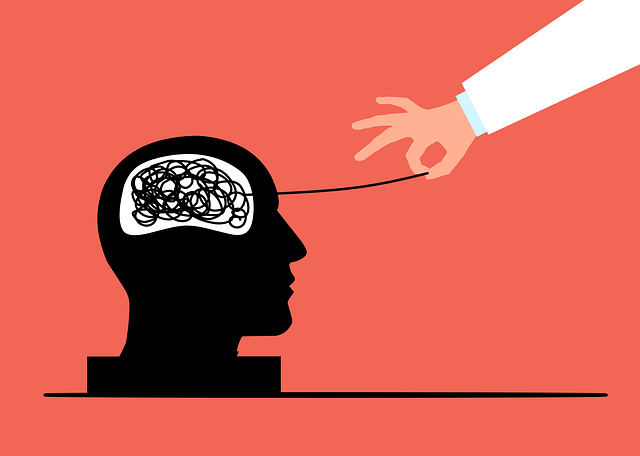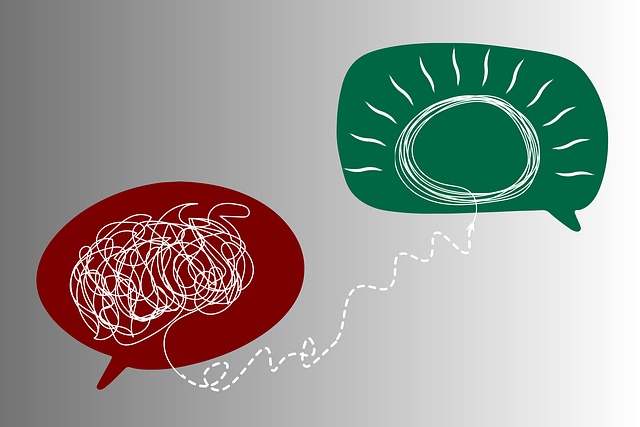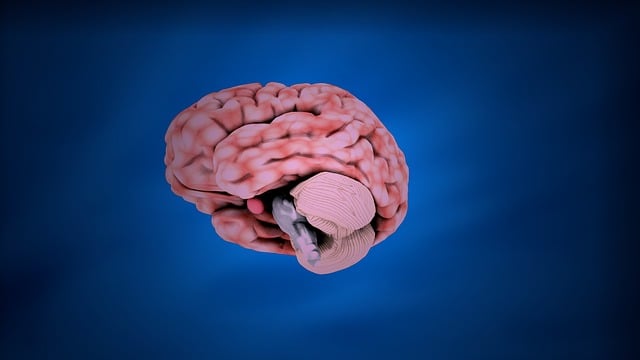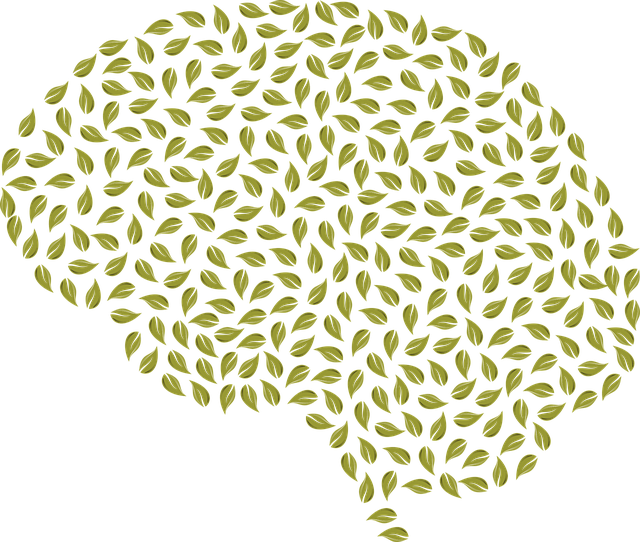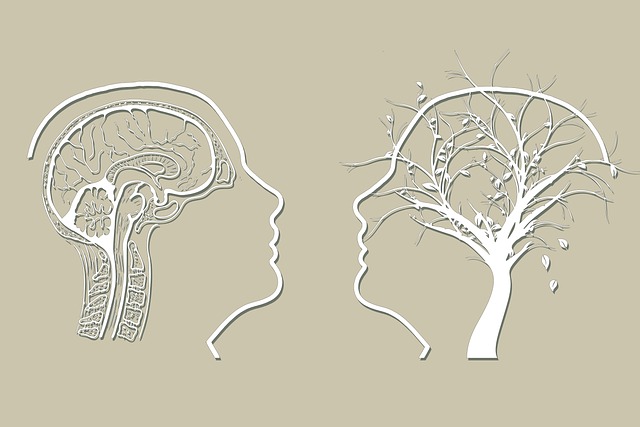Emotional Intelligence (EI) is a vital skill for young adults facing mental health challenges, enabling them to manage stress and anxiety. Cognitive Processing Therapy (CPT), a therapeutic approach, enhances EI by identifying and modifying negative thought patterns related to anxiety and depression. Healthcare providers promote mental health awareness through cultural competency training and safe spaces, empowering young adults to develop emotional intelligence. CPT encourages self-awareness, coping strategies, and resilience, preventing burnout in high-pressure environments. Integrating EI into daily life improves relationships and overall well-being, while mental health education programs equip individuals with knowledge and skills to recognize and respond to emotions appropriately, fostering empathy and social connections.
Emotional intelligence (EI) is a vital asset for young adults navigating today’s complex world. This article explores the significance of EI in fostering personal growth and mental well-being, particularly through the lens of cognitive processing therapy (CPT). We delve into effective strategies to integrate EI into daily life, highlighting its profound impact on both individual success and overall health. Discover how CPT empowers young adults to enhance their EI, leading to improved relationships, reduced stress, and increased resilience.
- Understanding Emotional Intelligence and Its Importance for Young Adults
- Cognitive Processing Therapy: A Powerful Tool for Enhancing Emotional Intelligence
- Strategies to Incorporate Emotional Intelligence into Daily Life
- The Impact of Emotional Intelligence on Mental Health and Personal Growth
Understanding Emotional Intelligence and Its Importance for Young Adults

Emotional intelligence (EI) is a vital skill for young adults navigating an increasingly complex world. It involves recognizing, understanding, and managing one’s own emotions, as well as empathizing with and responding appropriately to others’ emotional states. This isn’t merely about being aware of feelings; it’s about using that awareness to drive positive decisions and build meaningful relationships. For young adults, developing EI can be transformative, helping them to better manage stress, anxiety, and other mental health challenges that are common during this life stage.
Therapy for young adults, such as Cognitive Processing Therapy (CPT), is an effective approach in enhancing emotional intelligence. CPT helps individuals identify and change negative thought patterns contributing to problems like anxiety relief and depression. Beyond therapy, healthcare providers play a crucial role in promoting mental health awareness through cultural competency training. This ensures that young adults receive care that understands and respects their unique backgrounds and experiences, fostering a safe space for them to develop and express their emotional intelligence.
Cognitive Processing Therapy: A Powerful Tool for Enhancing Emotional Intelligence

Cognitive Processing Therapy (CPT) is a highly effective approach for young adults looking to boost their emotional intelligence and overall well-being. This form of therapy focuses on understanding and managing thoughts, emotions, and behaviors, which are key components of emotional intelligence. Through CPT, individuals learn to recognize and challenge negative thought patterns that can lead to distress and impair emotional regulation. By developing self-awareness exercises and coping skills development, young adults can gain a deeper understanding of their feelings and the triggers that set them off.
One of the significant advantages of CPT is its ability to prevent burnout, a common issue among today’s high-pressure environments. By learning effective coping strategies, young adults can navigate challenging situations with resilience and adaptability, reducing the risk of emotional exhaustion. This therapy empowers individuals to make sense of their experiences, fostering personal growth and enhanced emotional intelligence that can benefit them in various aspects of life.
Strategies to Incorporate Emotional Intelligence into Daily Life

Incorporating emotional intelligence into daily life can significantly enhance relationships and overall well-being. One effective strategy is cognitive processing therapy, which helps individuals understand and manage their emotions by identifying negative thought patterns. This form of therapy for young adults encourages active listening, fostering better communication strategies both personally and professionally. By learning to process emotions constructively, one can reduce stress and improve decision-making.
Additionally, mental health education programs design plays a crucial role in promoting emotional intelligence. These programs equip individuals with the knowledge and skills to recognize and respond appropriately to their own and others’ emotions. Through interactive workshops and discussions, participants learn effective communication strategies that build empathy and strengthen social connections. This holistic approach ensures that emotional intelligence becomes an integral part of one’s daily routine, positively impacting both personal and professional interactions.
The Impact of Emotional Intelligence on Mental Health and Personal Growth

Emotional intelligence (EI) plays a pivotal role in fostering mental health and driving personal growth, especially for young adults navigating life’s challenges. Beyond basic emotional awareness, EI involves managing emotions effectively, understanding others’ feelings, and using this empathy to navigate relationships and resolve conflicts. This ability isn’t merely an advantage; it’s a lifeline, offering protection against the corrosive effects of stress, anxiety, and depression. By honing their EI skills, young adults can develop robust coping mechanisms, enhancing their resilience in the face of adversity.
In cases where individuals struggle with mental health issues, Cognitive Processing Therapy (CPT), a form of crisis intervention guidance, has proven effective. CPT focuses on identifying and modifying unhelpful thought patterns, thereby improving emotional regulation. This therapy complements EI development by teaching communication strategies that foster understanding and empathy in interpersonal relationships. Similarly, the integration of EI into mental wellness podcast series production can enhance reach and engagement, offering accessible platforms for sharing valuable crisis intervention guidance and communication strategies.
Emotional intelligence is a vital asset for young adults navigating their personal and professional lives. By understanding and managing emotions, individuals can foster better relationships, make more informed decisions, and achieve greater mental well-being. Cognitive Processing Therapy (CPT) offers an effective approach to enhancing emotional intelligence by teaching individuals to recognize and interpret their feelings accurately. Incorporating CPT techniques into daily life can lead to significant improvements in both mental health and personal growth for young adults seeking to excel in various aspects of life.





